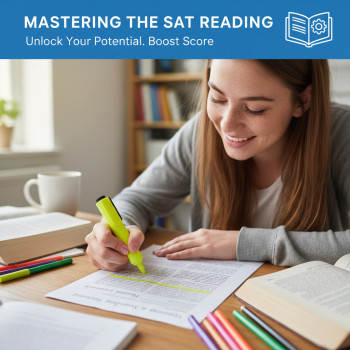Introduction: Why the SAT still matters for Boston College
Planning for Boston College feels like learning a new language—part logistics, part storytelling, and all heart. Whether you’re a student dreaming of walking the Chestnut Hill campus or a parent trying to make sense of application checklists, understanding how the SAT fits into Boston College’s admissions picture will give you calm control instead of anxious guesswork.
Short version: Boston College evaluates applicants holistically, but the SAT still plays a role—especially if you choose to submit scores. Below we unpack what that means, what score range most admitted students fall into, how to decide whether to submit your scores, and actionable strategies to maximize your application’s strength. We’ll also show how thoughtful, personalized help (for example, Sparkl’s 1-on-1 guidance, tailored study plans, expert tutors, and AI-driven insights) can fit into a smart, stress-minimizing plan.

What Boston College’s SAT policy looks like today
Boston College is selective and values many parts of your application: academic record, letters of recommendation, essays, extracurriculars, and — if you submit them — standardized test scores. The university currently considers SAT/ACT scores only if you choose to submit them; they are not a strict requirement for every applicant. That means test scores are optional, but meaningful when included—especially for scholarship consideration, academic placement, or if they strengthen an otherwise thin part of your application.
Most admitted students who do submit SAT scores land in a competitive range. Think of these numbers as the middle 50%—a useful benchmark, not a ceiling you must reach to have a shot.
Key facts at a glance
- Application type: Holistic review (grades, rigor, essays, recommendations, activities).
- SAT policy: Considered if submitted—applicants may apply without test scores.
- SAT middle 50% range (typical for submitted scores): High-scoring—use it as a goal if you plan to submit.
- Deadlines: Early decision and regular deadlines should be confirmed each year; aim to be ready well before the deadlines.
Understanding SAT score ranges and what they mean
When you look at a college’s SAT range, you’re seeing the middle 50% of admitted students’ scores. If Boston College reports, for example, a middle 50% range in the mid-1400s to low-1500s, that means half of admitted students scored in that band and half scored below or above it. But remember: colleges accept many students whose scores fall outside the middle range—your transcript, essays, activities, and recommendations matter.
| Metric | Example Value (Use as Benchmark) |
|---|---|
| SAT Middle 50% Range | 1460–1520 (typical benchmark for admitted students who submit scores) |
| Application Type | Holistic review; test-optional policy (scores considered if submitted) |
| Acceptance Rate (approx.) | Highly selective—plan as a reach for many applicants |
| Common Deadlines | Early Decision: Early November; Regular Decision: Early January (confirm annually) |
Use these numbers as a compass, not a cage. A lower SAT won’t automatically disqualify you if other parts of your application are strong; conversely, a high SAT doesn’t guarantee admission on its own.
Should you submit SAT scores to Boston College?
That’s the million-dollar question. The honest answer: it depends on your individual application strengths.
Submit scores if:
- Your SAT score is at or above the college’s middle 50%—it strengthens your academic profile.
- You have a strong test day performance that complements an otherwise average transcript (e.g., excellent standardized evidence of academic ability.)
- You’re applying for scholarships or want to maximize academic placement options tied to test scores.
Consider not submitting scores if:
- Your SAT score is well below the middle 50% and cannot be improved with reasonable additional prep or a retake before deadlines.
- Your academic record (rigor and grades), teacher recommendations, extracurriculars, and essays clearly show strength that you prefer to emphasize instead.
- You’re applying with strong AP/IB/A-level results, a powerful GPA, and compelling non-test achievements.
For students on the fence, a targeted approach helps: take a prep plan that aims to raise your score to at least the lower bound of the middle 50%—and ask a trusted counselor or tutor for a realistic assessment. Tools like official practice tests and practice in realistic test conditions will tell you quickly whether a score-submit strategy is viable.
How admissions offices actually use submitted SAT scores
When you submit SAT scores, they become one more data point in a holistic review. Admissions officers use them to:
- Contextualize your high school grades (do your grades and scores together suggest under- or over-performance?).
- Compare academic readiness among applicants from different school systems.
- Inform scholarship and merit considerations in some cases.
- Guide academic placement or course advising when you enroll.
What they don’t do is treat a single test score as the whole story. A balanced application still wins.
Practical timeline: When to take the SAT for Boston College applicants
Timing matters. Here’s a practical plan that gives you safety margins for retakes and score reporting.
- Junior year spring: Take the first full-length SAT practice test under timed conditions to set a baseline. Plan real SAT dates in late spring or summer.
- Summer after junior year: If you have time, aim for a diagnostic test in June or August and start focused prep.
- Early senior year: Take a real SAT by October/November if you plan to submit scores for Early Decision; this allows one retake in October/November depending on the testing calendar.
- If applying Regular Decision in January, take an SAT by October/November and consider a final retake in December or January if scores won’t arrive late (always confirm score-report deadlines).
Always check Boston College’s application deadlines for the year you apply and allow time for score reporting. Colleges may require official scores by certain dates for scholarship consideration or to complete your file—so don’t wait until the last minute.
How to prepare: study strategies that actually move your score
Smart preparation combines focused practice, content review, and test-taking strategy. Here are the core elements that repeatedly help students improve:
1. Baseline then target
Start with a timed, full-length practice test. Use that score to set a realistic, measurable goal—e.g., raise your score by 100–150 points with an 8–12 week focused plan. A concrete goal makes planning efficient.
2. Master the question types, not just content
Learn the common logic behind Reading and Writing questions and the math problem-solving strategies that recur on the SAT. Practice with official College Board questions to get the closest-to-real experience.
3. Quality over quantity
Short, focused daily practice beats long, aimless sessions. One targeted practice mix per day—15–30 minutes reviewing errors, 30–60 minutes on a block of practice problems—keeps momentum without burnout.
4. Timed, full-length practice tests
Take at least one full-length test every 2–3 weeks during peak prep. Review every error deliberately: what was the trap? Was it content, timing, or a careless mistake?
5. Personalized feedback
This is where individualized tutoring pays off. A good tutor or program—like Sparkl’s personalized tutoring—can diagnose patterns in your mistakes, provide tailored practice plans, and help refine strategies for the exact score band you need. That targeted, 1-on-1 guidance often delivers more efficient gains than undifferentiated group prep.
Essay and non-test elements that strengthen your application
Boston College values stories—your intellectual curiosity, leadership, and resilience. The SAT may quantify part of your readiness, but essays, recommendations, and your transcript tell the narrative. Here are ways to reinforce your application beyond test scores:
- Write an authentic personal statement: reveal something meaningful that grades alone cannot show.
- Choose recommenders who know you well and can speak to intellectual growth or character.
- Use activities to show depth: sustained involvement, leadership, or a meaningful project will stand out more than many shallow entries.
How to present your best case if your SAT is lower than desired
If your SAT isn’t where you hoped, you can still build a compelling application. Admissions officers look for patterns—consistent improvement, intellectual curiosity, and contextualized achievement.
- Highlight upward trends in grades and stronger coursework in junior and senior years.
- Use the optional essay and supplemental materials (if applicable) to explain meaningful context—illness, family responsibilities, or other challenges—without making excuses.
- Submit additional academic evidence: AP scores, IB scores, dual-enrollment transcripts, or evidence of rigorous coursework.
- Consider a test-optional strategy: do not submit a low SAT if it will hurt your application. Instead, emphasize narrative and academic record.
Score sending: practical tips and Score Choice
College Board’s Score Choice option lets you send test dates you prefer, but some colleges require all scores. For Boston College, confirm current score-reporting expectations before relying on Score Choice as a blanket solution. If you have multiple test dates, send the combination that best showcases your improvement and highest subscores.
Real-world examples and scenarios
Example 1: Maya (competitive GPA, SAT 1510): Maya’s SAT falls into Boston College’s typical submitted range. She submits her score, pairs it with strong teacher recommendations and an essay about public service, and applies Early Decision—her SAT helps confirm academic readiness.
Example 2: Jamal (rigorous AP schedule, SAT 1280): Jamal’s scores are below the competitive range but his transcript shows a rigorous course load with high grades and strong recommendations. He opts not to send SAT scores and highlights dual-enrollment coursework; his application focuses on demonstrated classroom performance and leadership.
Both approaches are valid because Boston College evaluates the whole applicant.
Financial aid and scholarships: does the SAT matter?
Some merit scholarships use test scores in their formulas, while need-based aid relies on financial information. If you aim for merit awards, strong SAT scores can help; if not, emphasize application strength in other areas. Always check scholarship-specific requirements and deadlines.
How Sparkl-style personalized tutoring can help—when it fits
Not every student needs a tutor, but for many, targeted help accelerates progress. Personalized 1-on-1 tutoring provides tailored study plans, consistent accountability, and expert feedback on weak areas. When it fits naturally into a student’s routine, this approach can reduce wasted hours and focus on the strategies that produce the largest score gains. Combining human coaching with data-driven insights (for example, AI-driven diagnostics that identify persistent error patterns) makes prep more efficient and less stressful.
Checklist: Final steps before you submit
- Confirm Boston College deadlines for the year you apply (ED vs. RD).
- Decide whether to submit SAT scores based on realistic practice-test performance.
- If submitting, make sure official scores will be reported by the application deadline.
- Polish essays and gather strong recommendations well before deadlines.
- Have a trusted counselor or tutor (optionally Sparkl-style personalized help) review your entire application package.

Final thoughts: Bring your whole self to the process
Boston College seeks students who will thrive intellectually and contribute to campus life. SAT scores are one tool to show readiness, but they’re not the only way. Keep a balanced perspective: prepare in a focused, efficient way; use practice tests to guide your decisions; and let your essays and activities tell your story. If you need help sharpening your approach, consider targeted, personalized support that fits your learning style—tutoring that provides 1-on-1 guidance, tailored study plans, expert feedback, and intelligent diagnostics can turn anxious hours into meaningful gains.
Applying to Boston College is a journey. Treat each step—testing, essays, recommendations—as an opportunity to show who you are and how you learn. With thoughtful planning, honest self-assessment, and the right support, you’ll put your best foot forward.
Quick resource reminder
Double-check Boston College’s application policies and deadlines for the cycle you’re applying in, confirm any score-reporting timelines, and reach out to admissions with specific questions. Planning ahead and using targeted practice will keep you confident and prepared.
Good luck—and breathe
College admissions can be intense, but it’s also a time of exploration and growth. Trust your preparation, tell your story clearly, and remember that wherever you end up, this process shapes your next chapter. If you want help organizing a prep plan or need a coach to guide your SAT strategy, consider personalized tutoring options that can fit into your life and bring clarity to your prep.

















No Comments
Leave a comment Cancel